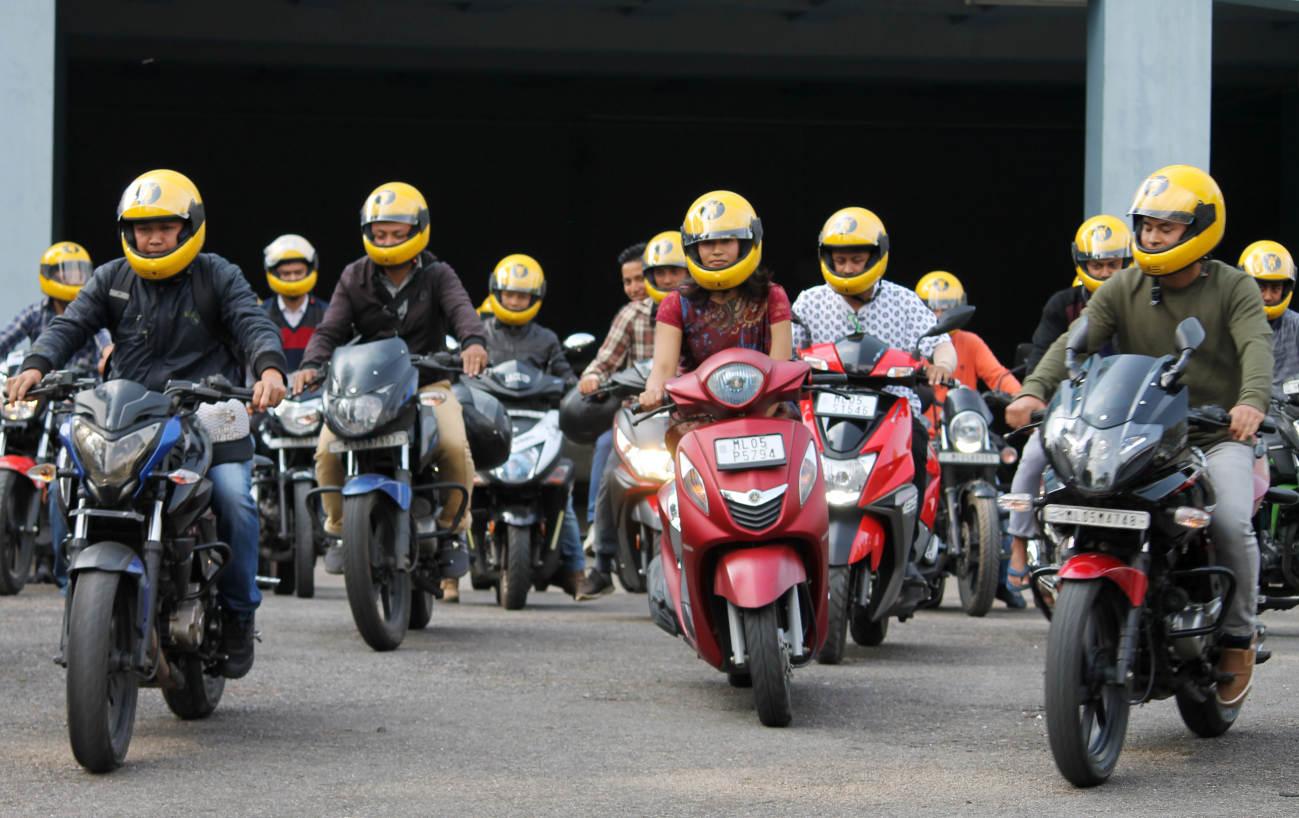Rapido — one of the largest players in the bike taxi commute business — says the new guidelines released by the central government on July 1, permitting “non-transport motorcycles” for aggregators, no longer give states the option of rejecting the revised policy.

Photograph: ANI Photo
Says Pavan Guntupalli, co-founder of Rapido: “The guidelines permit states to have an additive policy but not the option to accept or reject the guidelines.”
He adds that Rapido has always operated bike taxis with the understanding that there is already a provision in the Central Motor Vehicles Act for bikes to function as transport vehicles.
“The second clarification by the Centre reinforces this.
“They’ve now clarified that white plate motorcycles can also be used to support commute services.”
The move is a major step forward and comes just days after the Karnataka high court banned bike taxi services in the state, disrupting public transport, especially in Bengaluru.
It also opens the door for many more states beyond the 17 that have already legalised bike taxi services to join in.
The Motor Vehicle Aggregator Guidelines state: “The state government may allow aggregation of non-transport motorcycles for passenger journeys as shared mobility through aggregators.”
Guntupalli says the company’s approach has always been to work with state governments.
“Each state is different, and we’re aware of that.
“Depending on the state and city infrastructure or constraints, there may be a need for policy customisation or additional requirements.
“Now that the central government is being more vocal and direct in guiding states, our immediate step would be to ramp up efforts to collaborate with states where things are moving slowly, or not at all,” he pointed out.
To put the business in perspective, estimates by Rapido and the industry say there are 9 million bike taxi riders across the country.
Karnataka has around 600,000 of them across 17 cities, most of whom are local, accounting for under 7 per cent of the total bike taxi gig workforce.
Of those, 150,000 gig workers are based in Bengaluru.
Their daily earnings range from Rs 90 to Rs 120, with over 80–85 per cent coming from passenger commutes and the rest from delivery services, making this the largest gig employment category in the country.
However, in terms of actual rides, Karnataka is a big player, clocking 15-20 million rides a month compared to 80–100 million nationwide.
That gives it a 15–20 per cent share of all rides in the country.
Guntupalli says the potential for bike taxi services is massive in a country where people are desperate for affordable, mass commute options.
He points to Indonesia for perspective: “In Jakarta, which has infrastructure very similar to Bengaluru, just one bike taxi operator clocks 1 million rides a day.
“The city has three operators. With the right policy, Bengaluru can easily support 5 million rides a day.”
Ride-hailing numbers
- 9 million gig workers power India’s bike taxi economy, 600,000 in Karnataka alone
- Bengaluru’s backbone: 150,000 riders keep the city moving
- 80-100 million bike taxi rides take place across India every month
- Karnataka clocks 15–20 million rides monthly — nearly 1 in 5 nationally
- Riders earn Rs 90–100 an hour, hitting up to Rs 35,000 a month




